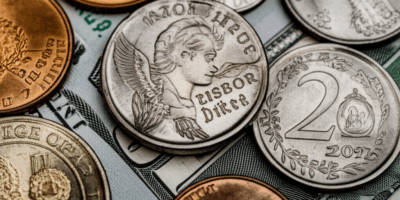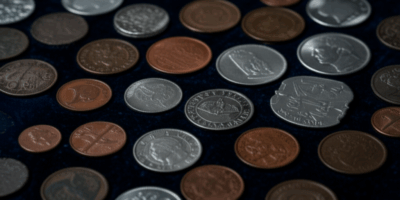Coins, as we know them today, are small, typically round pieces of metal that have been used for thousands of years as a form of money. But have you ever wondered where they originated and who is credited with this ingenious invention? Understanding the history of coinage is not only about tracing metal currency but also about exploring the evolution of economic systems and trade practices throughout ancient civilizations.

The concept of coinage as a standardized medium of exchange can be traced back to the ancient kingdom of Lydia, now part of modern Turkey, around 600 BCE. The Lydians are often credited with inventing the first coins. However, the true ‘father’ of the coin is a bit more complex to pinpoint because it involves both a culture and key individuals associated with that culture’s advancements.
King Alyattes of Lydia is often recognized as the figure under whose reign the first official coins were minted. These early coins were made from electrum, a naturally occurring alloy of gold and silver, and were stamped with official marks to verify their authenticity and weight. The invention of coinage revolutionized the economy of Lydia, facilitating easier trade and economic expansion.
The process of minting coins spread quickly from Lydia to other regions, influenced by the growth of trade and the need for standardized currency. As civilizations evolved, so did their methods of coin production, with the Greeks, for instance, enhancing the designs, which often featured their gods and heroes, to reflect their culture and serve as a tool for propaganda.
The spread of coinage can be seen as a testament to its revolutionary impact on society. By standardizing transactions, coins helped reduce the complexities of trade that were common with barter systems, where goods were traded directly for other goods. Coins provided a consistent medium for exchange and also allowed for the storage of wealth in a new, more portable form.
Despite the advancements in coinage, the question of who exactly is the ‘father of coin’ remains more symbolic than literal. If we consider the pivotal role of the individual in the progression of coinage, King Alyattes certainly stands out as a seminal figure in its early history. Yet, it is also important to acknowledge the broader cultural and economic structures that made such an invention both necessary and successful.
Today, coins are a fundamental part of modern economies around the world, though the rise of digital transactions signals yet another shift in the nature of currency. Nonetheless, the legacy of coinage as initiated by the Lydians under King Alyattes’ reign remains a significant chapter in the history of human civilization.
In conclusion, while it may not be accurate to single out one individual as the definitive ‘father of coin,’ King Alyattes of Lydia and his kingdom’s pioneering use of metal currency play a crucial role in the story. The creation of coins was a collective achievement that not only highlights the ingenuity of the Lydians but also marks a pivotal moment in the economic history of the world.
Recommended Collecting Supplies
Coin Collection Book Holder Album – $9.99
312 pockets for coins of all sizes.
20x Magnifier Jewelry Loupe – $13.99
Essential tool for examining coins and stamps.
As an Amazon Associate, we earn from qualifying purchases.




Leave a Reply